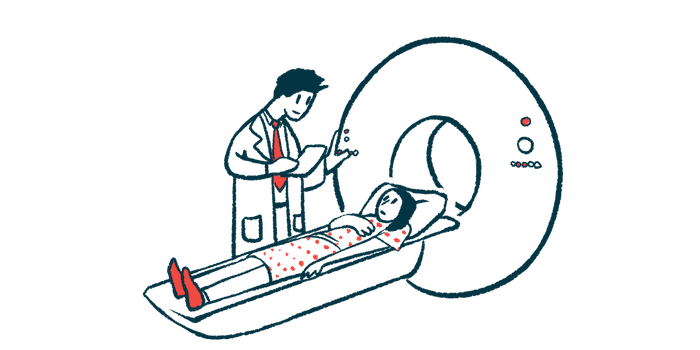CF Trust supporting studies into lung MRI scans, bicarbonate transport
Multiyear projects part of Strategic Research Centre program run in UK
Written by |

Two new Strategic Research Centres (SRC), each leading a multiyear study into research priorities identified by cystic fibrosis (CF) patients, will open the U.K. in September.
The work, which bring together scientists and specialists from different fields, is supported by £1.4 million — around $1.8 million — in funding from the Cystic Fibrosis Trust together with the Cystic Fibrosis Foundation.
“We’re so proud to be funding the research that matters most to people with CF. We hope that these two new centres, funded jointly with the Cystic Fibrosis Foundation, will help find new treatments, and stop CF damaging and shortening lives,” Lucy Allen, PhD, director of Research and Healthcare Data at the CF Trust, said in a press release.
Sheffield study into expanding MRI use in monitoring lung health
Jim Wild, PhD, a professor of magnetic resonance physics at the University of Sheffield, will lead The Pulmonary Magnetic Resonance Imaging for Cystic Fibrosis (MAGNIFY) SRC, which will run for four years.
The other center, Restoring the Fizz: Pharmacological repair of bicarbonate transport in cystic fibrosis, will be led by Paola Vergani, PhD, a professor in the division of biosciences at University College London, and will run for three years.
Wild and his team will assess the potential of new MRI methods and approaches in CF, including software to process MRI data, developed and tested by the POLARIS group at Sheffield.
Specifically, the researchers will investigate how these MRI methods may be used to track subtle changes in the lungs over time, particularly as more patients use CFTR modulators, effective therapies that can make such changes harder to detect. MRI scans using these methods could be more effective than CT scans or chest X-rays in managing CF in the clinic, and in assessing the effectiveness of therapy candidates in clinical trials.
“MRI offers many advantages over current methods of assessing lung disease and is especially well suited to the new era of CF medicine — for those able to benefit from current life-changing medicines and those who are not,” Wild said.
“Working with a team of clinicians, physicists, scientists, mathematicians and people with CF, we aim to make lung MRI a normal part of managing CF and reviewing new treatments in the future,” he added.
Researchers working in the MAGNIFY SRC will be at Sheffield, Nottingham, and Manchester universities.
SRC program, run by the CF Trust, supports multiyear work into issues
Vergani will lead a team aiming to further understand how the flow of bicarbonate in different organs is affected by CF.
Bicarbonate has antimicrobial properties in the airways and controls mucus release and fluidity in the airways and the gut. Bicarbonate also is key for the breakdown and absorption of fats. Having a missing or defective CFTR protein, the underlying cause of CF, impairs the flow of bicarbonate in the airways and digestive tract.
Researchers hope their work will help in understanding the disease’s impact outside of the lungs.
“We’re delighted to receive this SRC funding. It will allow a diverse group of CF experts around Europe to work together more easily and make faster progress. We hope that our lab-based studies will generate ideas on how to treat CF in the future, with medicines more suited to individuals based on the form of CF they have and the severity of different symptoms,” Vergani said.
The SRC program, run by the CF Trust, concerns researcher-initiated, three- or four-year studies into areas of importance to CF patients. While the team is interdisciplinary and can be global, working virtually, the lead institution and study’s principal investigator are based in the U.K.







